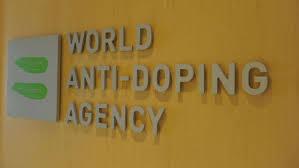February 14 – Following revelations about lack of drug testing in Spanish football, attention has now turned to the British domestic game with news that at least 39% of players who played in the English Football League last season – the three divisions below the premier League – were not tested by UK Anti-Doping (UKAD) authorities.
According to official figures, testers working on behalf of the English FA took just 1,204 samples from 1,989 registered players in the EFL.
The BBC disclosures also reported that from 550 players who play in the Premier League, 799 samples were taken. These figures do not account for players being tested more than once.
That means one player being tested five times would account for five samples, while some samples may have been taken from players who were registered with clubs but did not make a first-team appearance.
A spokesperson for UKAD told the BBC: “Like all sports, we create and deliver a testing programme for football which places resources where they are most effective in order to target where we believe the greatest risk of doping lies.
“But anti-doping programmes are no longer focused solely on testing and test numbers. There are 10 anti-doping rule violations under the World Anti-Doping (Wada) code, of which the presence of a prohibited substance in a sample is just one.”
Meanwhile the World Anti-Doping Agency (WADA) says the lack of testing within Scottish football is “not good news”. No tests have been carried out in the nine-month period to the end of 2016.
“In my view it is unfortunate if any country which purports to be a serious player in the football world has a gap in its testing programme,” said Wada president Craig Reedie.
“I think the SFA is slowly getting its act together in terms of a budget to do some testing, but a nine month absence is not good news.”
Contact the writer of this story at moc.l1734868983labto1734868983ofdlr1734868983owedi1734868983sni@w1734868983ahsra1734868983w.wer1734868983dna1734868983

